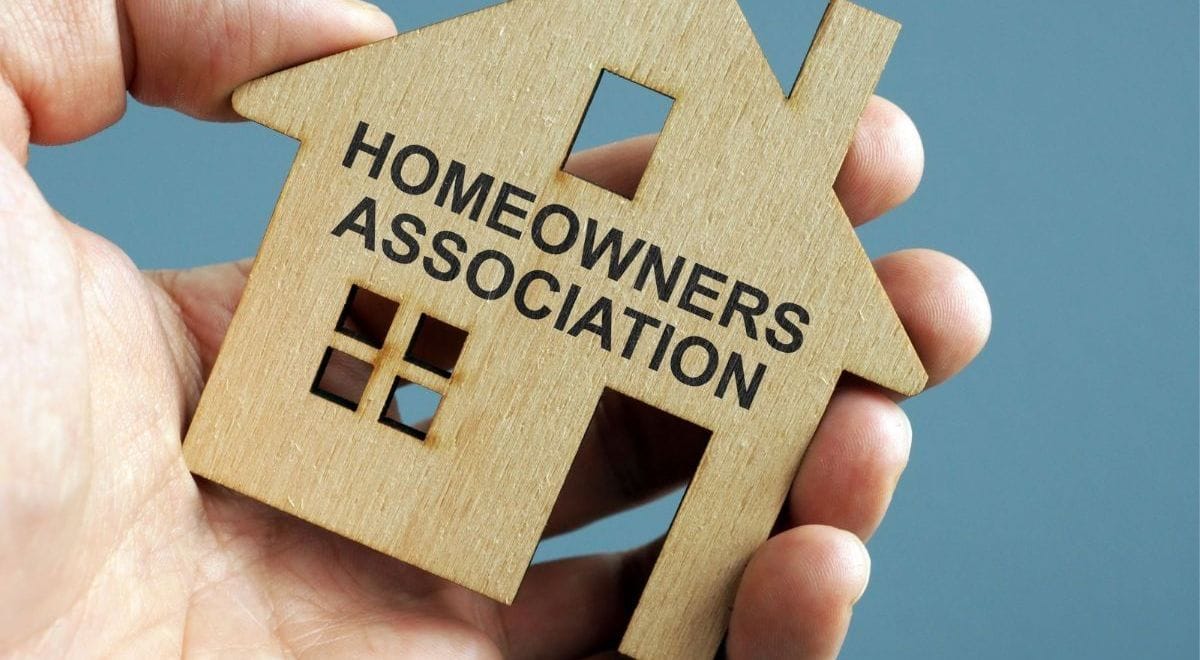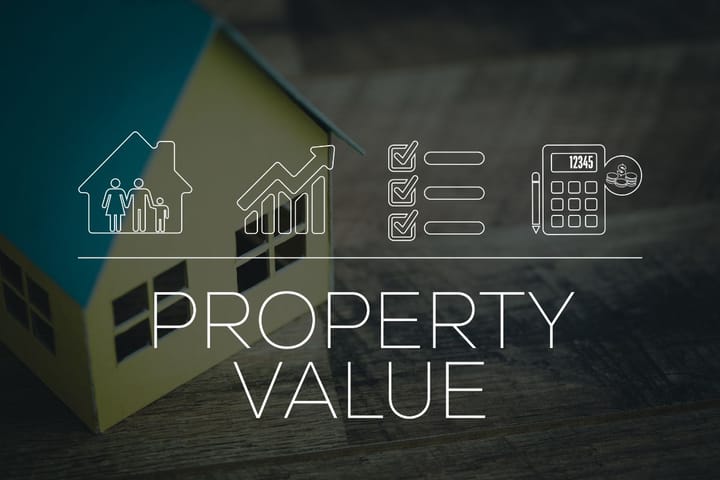Navigating HOA CC&Rs: Tips For Homeowners Compliance And Enforcement
HOAs influence neighborhoods with their CC&Rs. Homeowners must not only buy but also comply with these community rules and standards.

Homeowner's Associations (HOAs) hold immense power in shaping the character and upkeep of neighborhoods across America. For homeowners, it's not just about buying a home within these communities but also adhering to the Community Covenants, Conditions, and Restrictions (CC&Rs).
While designed to maintain a certain standard and aesthetics, these rules can sometimes feel overwhelming. Yet, understanding and complying with them is crucial for every homeowner. The phrase CC&Rs HOA isn't just a jumble of letters—it's the backbone of many communities. So, how does one navigate these often detailed and specific rules?
Here are some essential tips to guide you:
1. Understand The Basics Of CC&Rs
Transitioning from traditional homeownership to living under an HOA comes with its rules. At the forefront are the CC&Rs, which define the aesthetics of properties and homeowners' responsibilities within the community. These documents can cover various details, from architectural guidelines and landscaping to acceptable noise levels and parking restrictions.
Despite their expansive nature, it's crucial to keep abreast of any changes. CC&Rs aren't static; they can evolve with the community's needs which is one of the reasons for regular HOA elections. These elections are ideally monitored by a local or California HOA elections inspector to ensure transparency and compliance with state laws governing homeowner associations. Regular reviews will ensure you're not caught off guard by any new regulations or changes in existing ones.
2. Attend HOA Meetings
HOA meetings aren't just formalities. They’re an integral part of understanding the enforcement and nuances of CC&Rs. Attending these gatherings offers homeowners insights into prevalent community issues and provides a platform to seek clarifications.
It's also an opportunity to connect with neighbors and understand their concerns, which can sometimes mirror your own. These discussions can also prepare you for any alterations in the CC&Rs, helping you adapt swiftly.
3. Seek Approval Before Making Major Changes
Before delving into significant home projects, securing approval from the HOA is paramount. These approvals aren't merely bureaucratic hurdles but essential checks to ensure that any modifications align with the community's aesthetic and structural guidelines.
Submit your plans well in advance. This foresight not only aids the HOA in making informed decisions but also safeguards you from potential future conflicts. And remember, while the approval process might seem tedious, it's an essential step in preserving the harmony and standards of the community.
4. Know The Consequences Of Non-Compliance
Every action has a consequence, and non-compliance with CC&Rs is no exception. Homeowners might face fines, legal action, or even liens against their properties for violations. Thus, staying informed about your HOA's enforcement procedures is crucial.
Taking the time to understand these can save you a lot of headaches. If you receive any warnings or notices, address them at the earliest. Prompt attention showcases responsibility and can prevent minor issues from escalating.
5. Communicate With Your HOA Board
Effective communication can be the bridge between misunderstanding and clarity. If there's a rule you're unsure of or feel certain regulations no longer serve their purpose, reach out to your HOA board.
Always approach these communications constructively. The board comprises volunteers who dedicate their time to the community's betterment. Engaging them positively can lead to more fruitful discussions and potential resolutions.
6. Consider Mediation For Disputes
Differences in opinions and interpretations are natural, but they don't always need to culminate in drawn-out legal battles. Mediation offers a neutral platform, guiding conflicting parties towards understanding and compromise.
Look into local mediation services if disagreements arise. They can provide invaluable guidance. Mediation also allows both parties to hear each other out, promoting a more harmonious community spirit.
7. Stay Informed About Your Rights
HOAs, while powerful, operate within a legal framework. It means homeowners have rights, and being aware of them is vital. Various federal, state, and local laws come into play, ensuring checks and balances in the power dynamics.
Empower yourself by delving into these laws. Should you ever feel that the HOA is overstepping its boundaries or not acting in the community's best interest, this knowledge becomes your first line of defense. Remember that while the HOA aims to uphold community values, you have rights protecting your interests.
8. Keep Accurate Records
Documentation is vital when dealing with any organizational framework, and HOAs are no exception. Whenever you engage with the HOA, whether for approvals, disputes, or general communication, ensure you keep copies of all correspondence. It includes emails, letters, or even summaries of verbal interactions.
Having a well-maintained record keeps you prepared if any discrepancies arise. It's not about distrust but diligence. Knowing you have a clear trail of all interactions will give you confidence in all dealings with the HOA and can also expedite resolutions when everyone is on the same page.
9. Build Community Relationships
While rules and guidelines are crucial, never underestimate the power of relationships. Building strong ties with your neighbors and other community members can provide an informal support system.
Getting to know those around you enriches your living experience and can lead to shared insights about navigating CC&Rs. Mutual respect and understanding within the community often translate to more cooperative efforts to adhere to and perhaps even improve upon the established guidelines.
10. Educate New Community Members
The community's character is dynamic, with new members arriving and others moving on. A vital tip for smoother community living is to ensure that new members are educated about the existing CC&Rs.
Instead of leaving them to navigate the waters alone, offer them insights from your experiences. This proactive approach ensures continuity in community standards and can reduce potential conflicts due to ignorance. After all, an informed community is a harmonious community.
Maximizing Your HOA Experience

Homeowners Associations have become a staple in many residential communities. And as mentioned, they offer structure, maintain aesthetics, and promote harmony. However, the key to a genuinely positive experience with an HOA lies in adhering to rules and actively engaging with its ethos.
Here's how you can get the most out of your relationship with your HOA and contribute positively to your community:
- Seek Leadership Roles
Consider getting involved deeper by joining the HOA board or a committee. By assuming such a role, you influence decisions and provide a voice for your neighbors.
While these roles come with responsibilities, they also offer unparalleled insights into the functioning of the community. This active participation can also be a pathway to bring about desired changes and improve community life for everyone.
- Organize Community Events
Engaging with your community goes beyond attending meetings or adhering to rules. Consider organizing or participating in community events. Such events can foster camaraderie, whether it's a weekend barbecue, a monthly book club, or a yearly yard sale. They offer an excellent platform to discuss community matters informally, building stronger relationships with your neighbors.
- Stay Updated With Technology
Many HOAs now leverage technology to make operations more seamless. It might include online portals for fee payments, community discussion forums, or apps that update you about community events and notices. Embrace these technological tools, as they don't only simplify processes, but they also ensure you're always in the loop, even if you miss a meeting.
- Offer Your Skills
Every community is a melting pot of diverse skills and talents. Maybe you're a tech guru, a gardening enthusiast, or a finance whiz. Offer these skills to benefit the community.
For instance, if you have a knack for event management, you could organize community gatherings. Or, if you're into gardening, you could assist in beautifying common areas. Such contributions elevate the entire community's quality of life.
- Provide Constructive Feedback
Always remember that the HOA is there to serve the community, which includes you. So, if you see potential areas for improvement or feel a particular decision might not be in the community's best interest, speak up.
However, ensure your feedback is constructive. Offering solutions rather than just pointing out problems can lead to productive discussions and positive changes.
- Respect Common Spaces
While CC&Rs will have guidelines about personal property, it's just as essential to treat common areas with respect. Whether it's a community pool, a clubhouse, or shared green spaces, ensure you leave them as you'd like to find them. This consideration makes these spaces more enjoyable for everyone and reduces the workload for community maintenance teams.
- Empathize And Understand
Living in a community means recognizing its members' diverse perspectives and experiences. When rules or decisions are made, they often consider the broader good, balancing individual desires with collective needs.
It's crucial to approach any situation with an open heart and mind. By taking a moment to empathize with the intent behind a rule or decision, you may find that what initially seemed restrictive serves a beneficial purpose for the community.
Conclusion
Living within an HOA community offers numerous benefits, from well-maintained surroundings to increased property values. Understanding and navigating the CC&R landscape effectively ensures that you can enjoy these advantages seamlessly. The key lies in staying informed, being proactive, and maintaining open communication.
Moreover, forging strong relationships with both the HOA board and your neighbors becomes instrumental. Through collaboration and mutual respect, a community doesn't just coexist—it thrives, paving the way for a harmonious environment for you and for all residents.




Comments ()